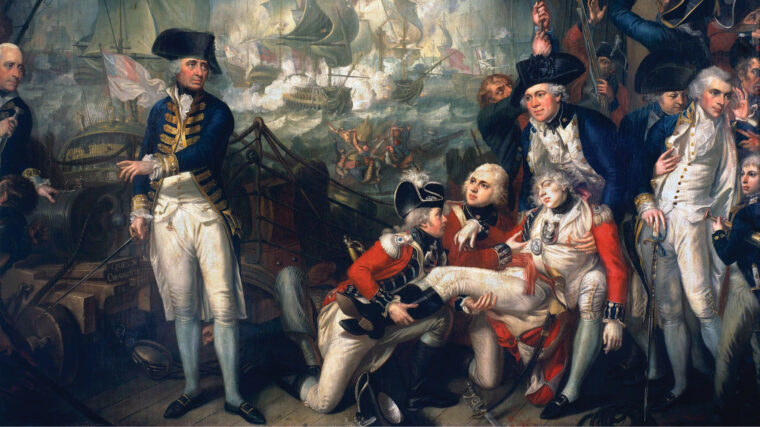
British Royal Navy
The Glorious First of June
By David A. NorrisBritish Admiral Lord Richard Howe, standing on the quarterdeck of his 100-gun ship of the line Queen Charlotte, snapped his signal book shut on the morning of June 1, 1794. Read more

British Royal Navy
British Admiral Lord Richard Howe, standing on the quarterdeck of his 100-gun ship of the line Queen Charlotte, snapped his signal book shut on the morning of June 1, 1794. Read more
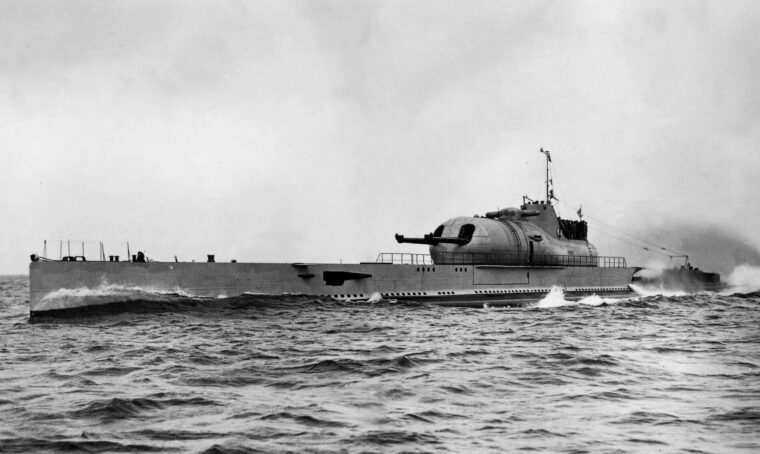
British Royal Navy
When built, the French Surcouf was the largest submarine in the world. She was named for Robert Surcouf, the famed French privateer who waged successful economic warfare against England during the Napoleonic era. Read more
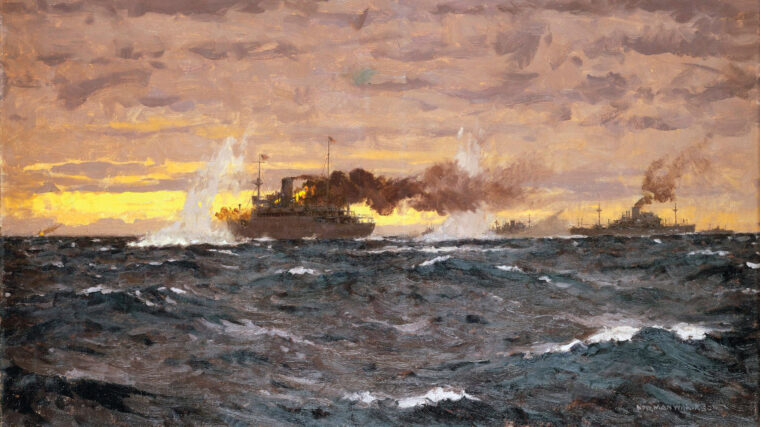
British Royal Navy
Throughout World War II, the British Admiralty’s deepest concern was the all-important shipping lanes that supplied their island fortress. Read more
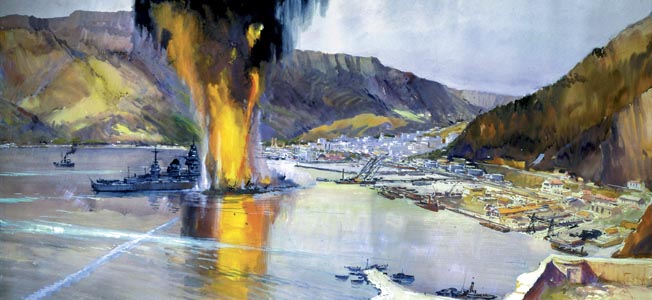
British Royal Navy
When the armistice between France and Germany was put into force on June 25, 1940, the fate of the powerful French Navy—the fourth largest in the world—was of critical importance to the British. Read more

British Royal Navy
In July 1939, Archibald Wavell was named General Officer Commanding-in-Chief (GOC-in-C) of Middle East Command with the rank of full general in the British Army. Read more
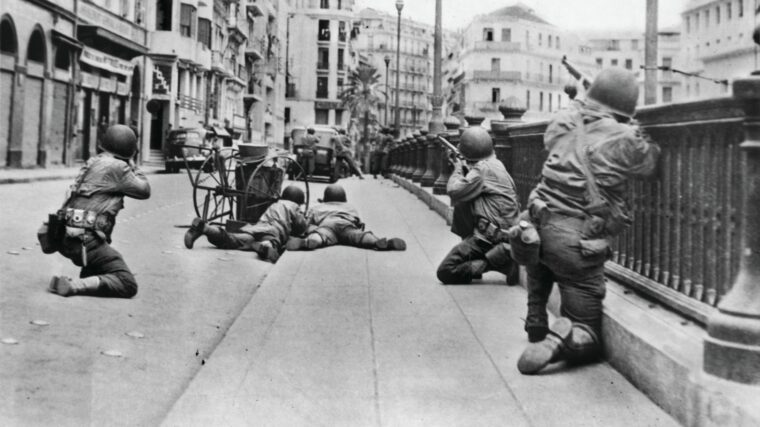
British Royal Navy
In November 1942, the Anglo-American invasion of North Africa, Operation Torch, caused a short but intense conflict with French forces loyal to the Vichy regime in power on the European mainland. Read more
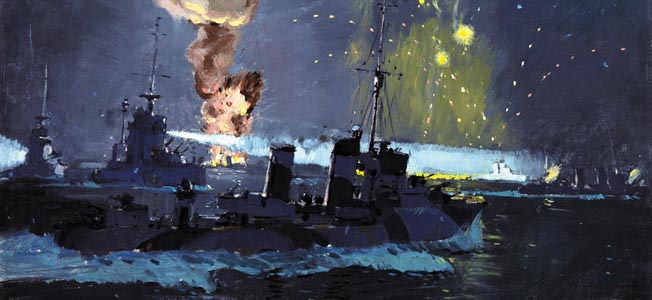
British Royal Navy
No class of ship in World War II saw more service than the destroyers of the Royal Navy. Read more
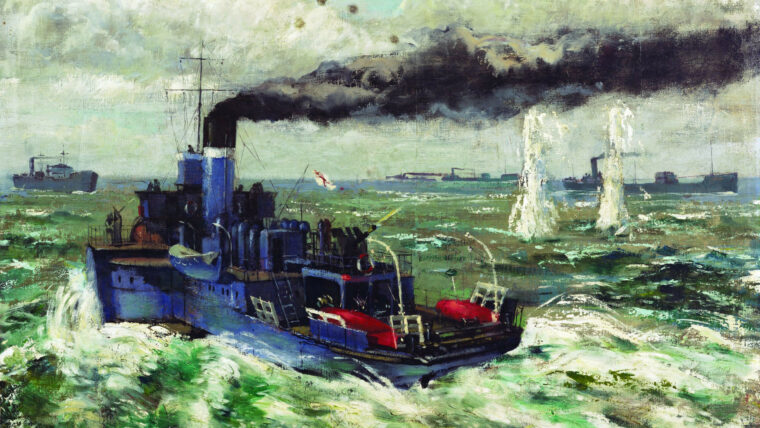
British Royal Navy
None of the Allied services engaged in World War II was in action longer or suffered a higher percentage of casualties than the British Merchant Navy. Read more
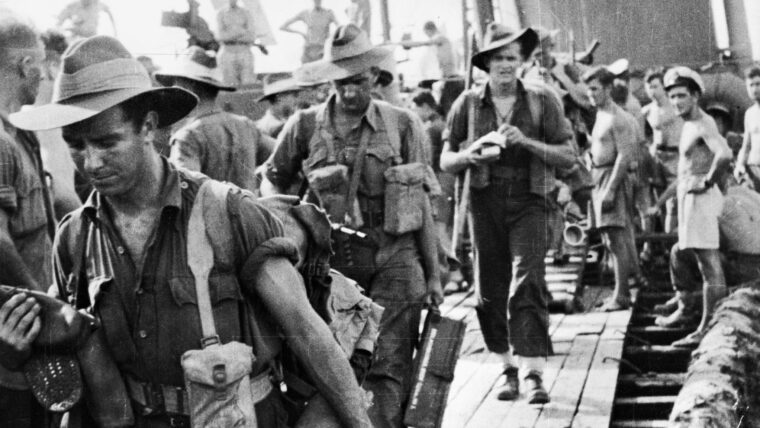
British Royal Navy
On October 20, 1941, the Australian destroyer Vendetta weighed anchor in the port of Alexandria, Egypt. After spending nearly two years supporting the Royal Navy in the fight for control of the Mediterranean Sea, the aging engines of the busy warship could no longer give her the speed needed to escort convoys, screen the fleet, or dodge dive- bombers. Read more
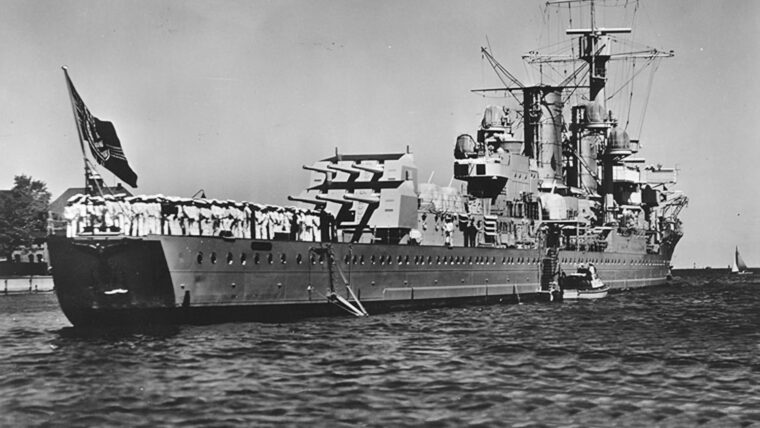
British Royal Navy
When the German invasion of Norway was set in motion on April 9, 1940, much of the planning for the event had been done on a shoestring. Read more
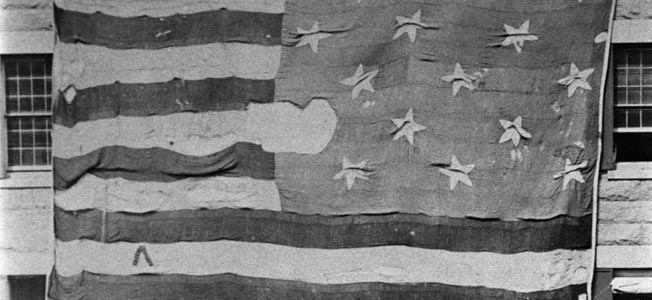
British Royal Navy
Lawyer, poet, and Maryland militiaman Francis Scott Key (1779-1843) was born in Frederick County, Md. He graduated from St. Read more
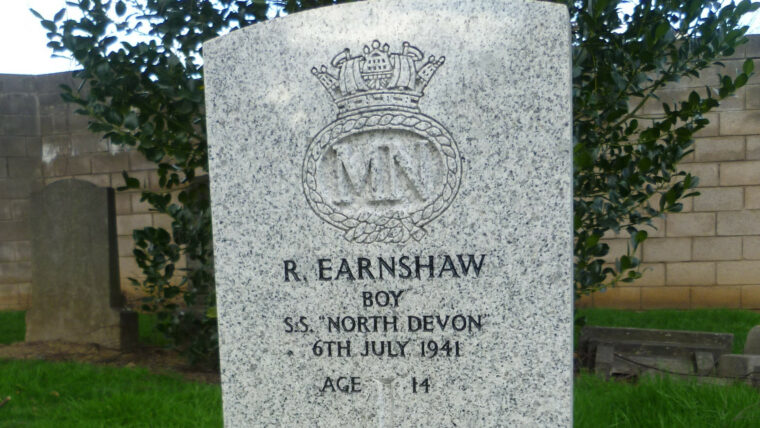
British Royal Navy
Duty in the British Merchant Navy was hazardous during World War II. Braving the stormy Atlantic, the expanse of the Pacific, and the daily rigors of life aboard ship were challenging enough during peacetime; however, during the dark days of the war a determined enemy, bent on bringing the island nation and its far-flung empire to their knees, unleashed a vicious campaign against Britain’s merchant lifeline. Read more
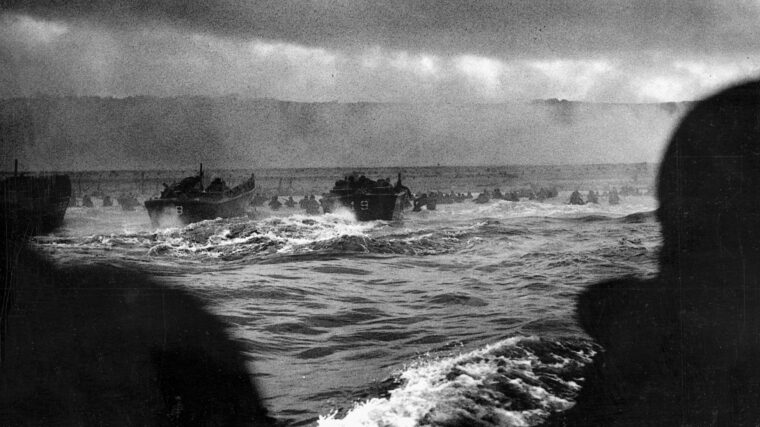
British Royal Navy
Operation Overlord, the cross-Channel attack that hit the Nazi-occupied beaches of Normandy in 1944, was the culmination of a grand strategy adopted early in the war, followed sporadically during the years of conflict, and aimed at defeating Hitler’s Reich by striking directly at Germany by invasion. Read more

British Royal Navy
The “Mythology of Munich” and “What Would Winston Do?” These were the feature story and the cover headline, respectively, for the June 23, 2008, issue of Newsweek magazine. Read more
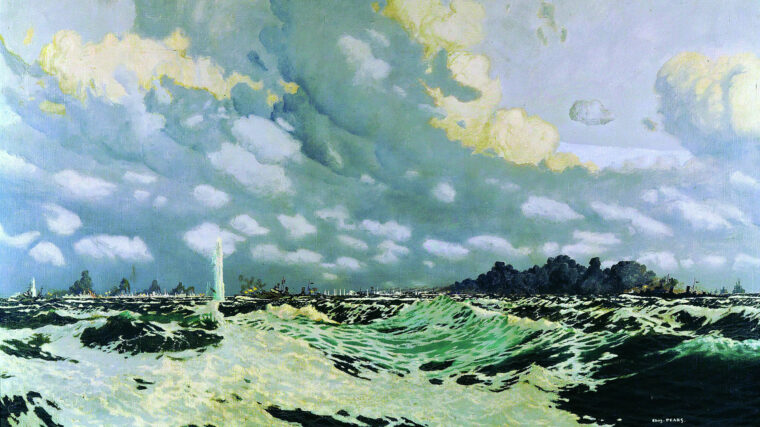
British Royal Navy
Located 58 miles south of Sicily in the Mediterranean Sea, the rocky, 122-square-mile island of Malta was the hinge upon which all Allied operations in the Middle East turned during the first half of World War II. Read more
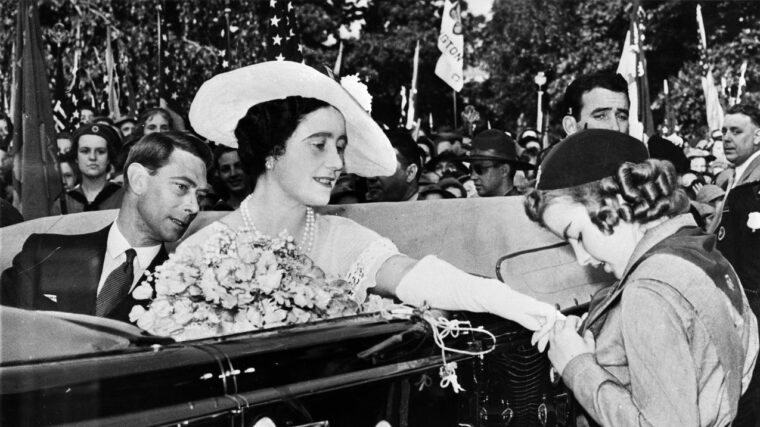
British Royal Navy
On May 6, 1939, King George VI of Great Britain and his wife Queen Elizabeth arrived in Portsmouth to board the liner Empress of Australia, which was to take them to Canada and subsequently to the United States. Read more
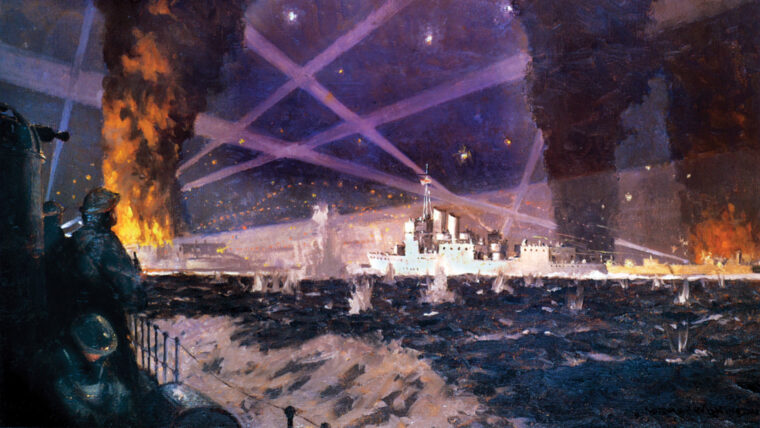
British Royal Navy
Britain badly needed a victory. As if to underline Britain’s difficult fortunes, on May 21, 1941, the German battleship Bismarck and heavy cruiser Prinz Eugen dealt the island kingdom a serious blow by sinking the battlecruiser HMS Hood and severely damaging the new battleship HMS Prince of Wales during a furious engagement in the Denmark Strait. Read more
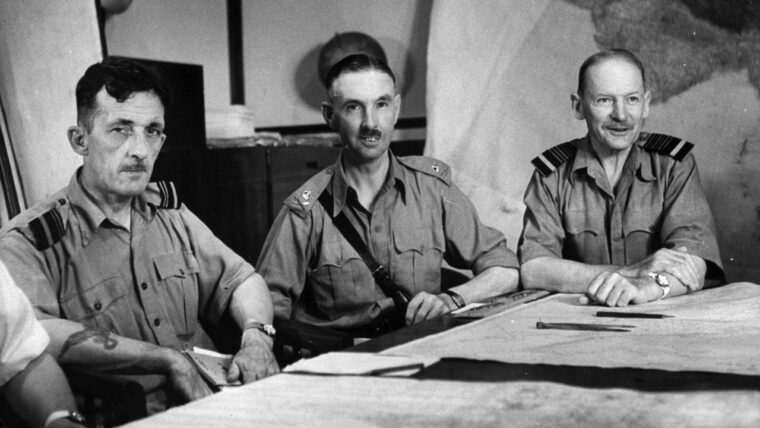
British Royal Navy
On February 15, 1942, the island fortress of Singapore surrendered with 130,000 men, thus ending the defense of Malaya as one of the largest military disasters in the history of British arms since Cornwallis’s capitulation to Franco-American forces at Yorktown in 1781 during America’s Revolutionary War. Read more
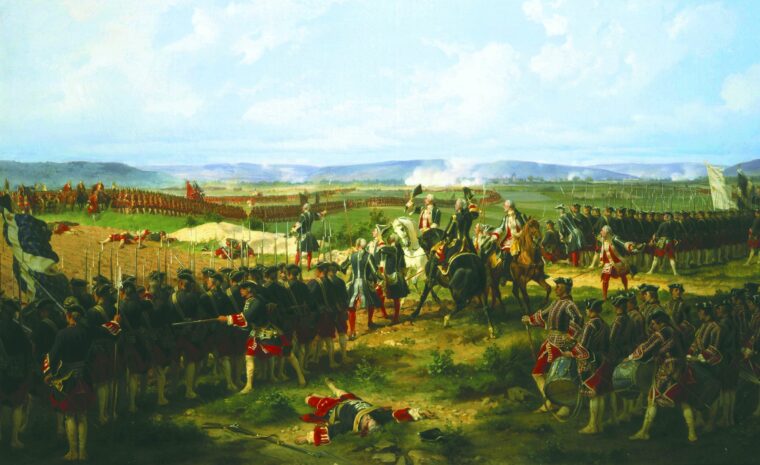
British Royal Navy
Few men in the 18th century lived a life as varied and unpredictable as that of Henry Lloyd. Read more
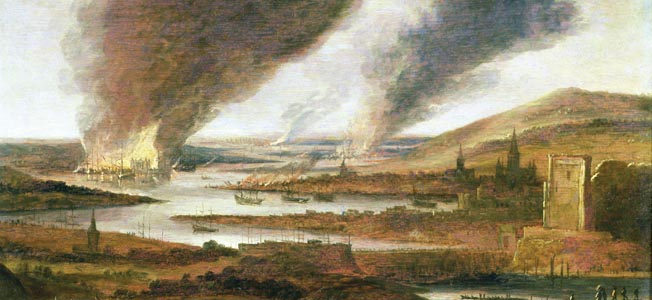
British Royal Navy
Samuel Pepys is best known for the diary he wrote from 1660 to 1669. Because it was never intended for publication, the diary is frank and even ribald. Read more